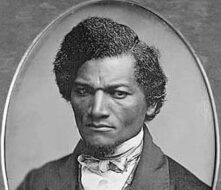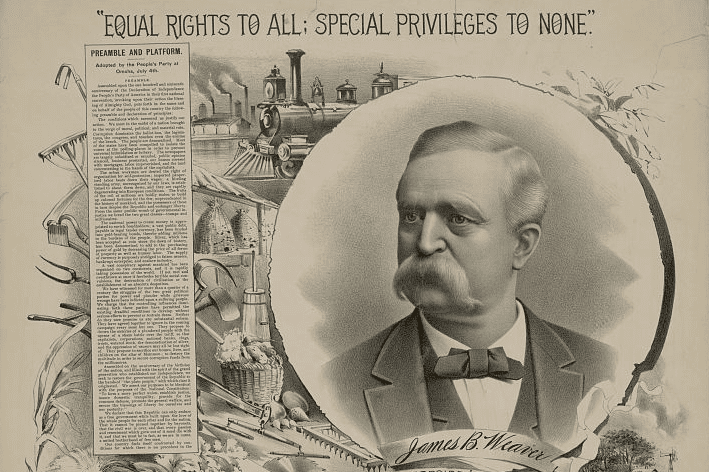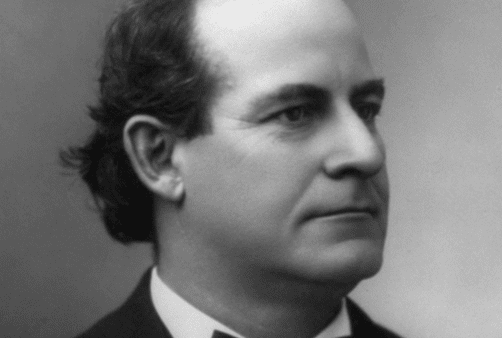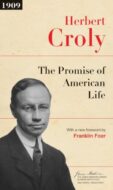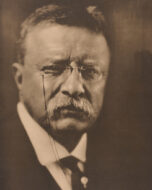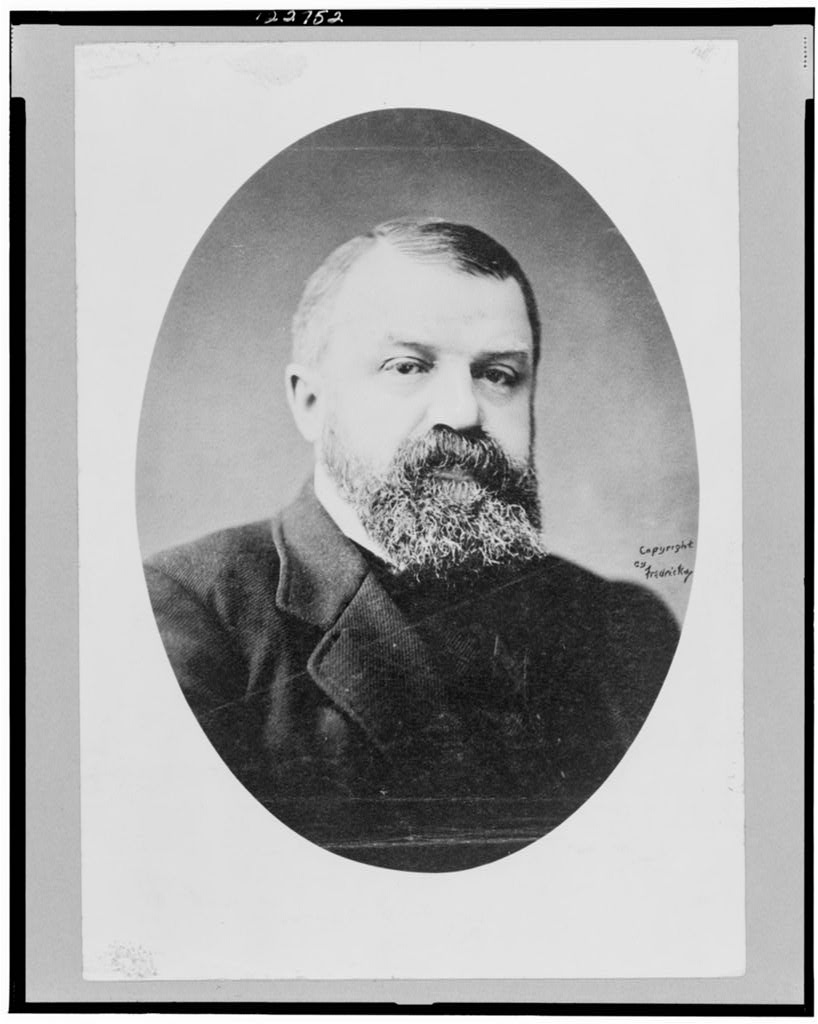
No related resources
Introduction
Dwight L. Moody (1837-1899) was one of the most famous evangelists and social reformers of the nineteenth century. After experiencing a religious conversion as a young salesman in Boston, Moody began to volunteer his skills as a public speaker to his local congregation. Eventually he moved to Chicago, where he started a Sunday school in a poor neighborhood, providing the attendees with practical as well as spiritual training. As the parents of the Sunday school students became interested in what their children were learning, Moody eventually formed a large urban congregation ministering primarily to the poor and immigrant populations of the city.
When his church was destroyed in the Chicago Fire of 1871, Moody departed on an international tour leading revival meetings that drew thousands of listeners in at a time to hear what he referred to as the “good old Gospel.” Yet although he preached the utter helplessness of man to save his own soul, Moody’s ministry was never primarily one of the spirit, as is evidenced even in this brief message. Being “born again,” Moody argued, had practical consequences for the individual believer, his or her family, and by extension, the broader society. Not surprisingly, therefore, he ended his career by returning to the problem of educating poor children, establishing the Chicago Evangelization Society (today known as the Moody Bible Institute). The original purpose of the school was to educate a corps of lay people—men and women—for “practical Christian work,” that is, the improvement of personal behavior through such reforms as temperance, better home hygiene, and anger management. Such efforts were intended to prove the life-transforming power of the gospel for individuals and families, and thus its importance for the betterment of society as a whole. In this sense, Moody is the inheritor of a long tradition of evangelical pietism in America that linked social transformation to individual regeneration (see Beecher).
“Jesus answered and said unto him, ‘Verily, verily, I say unto thee, except a man be born again, he can not see the kingdom of God’.” — John 3:3
Suppose I put the question to this audience, and ask how many believe in the Word of God. I have no doubt every man and every woman would rise and say, “I believe.” There might be an infidel or skeptic here and there, but undoubtedly the great mass would say they believed. Then what are you going to do with this solemn truth, “Except a man be born again, he can not see the kingdom of God,” much less inherit it? There are a great many mysteries in the Word of God. There are a great many dark sayings of which we have not yet discovered the depth. But God has put that issue so plainly and simply that he who runs may read if he will. This third chapter of St. John makes the way to Heaven plainer than any other chapter in the Bible; yet there is no truth so much misunderstood, and the church and the world are so troubled about, as this.
Let me just say, before I go any further, what regeneration is not. It is not going to church. How many men think they are converted because they go to church! I come in contact with many men who say they are Christians because they go to church regularly. It is a wrong idea that the devil never frequents any place but billiard-halls, saloons, and theatres; wherever the Word of God is preached, He is there. He is in the audience today. You may go to church all the days of your life, and yet not be converted. Going to church is not being born again. But there is another class who say, “I don’t place my hopes in going to church. I have been baptized, and I think I was regenerated when that took place.” Where do those persons get their evidence? Certainly not in the Bible. You can not baptize men into regeneration. If you could, I would go up and down the world and baptize every man, woman, and child; and if I could not do it when they were awake, I would do it while they slept. But the Word says, “Except a man be born again”—born in the Spirit, born in righteousness from above—“he can not see the kingdom of God.”
There is another class who say, “I was born again when I was confirmed. I was confirmed when I was five years old.” But confirmation is not regeneration. A new birth must be the work of God, and not the work of man. Baptism, confirmation, and other ordinances are right in their place, but the moment you build hope on them instead of on new birth, you are being deceived by Satan. Another man says, “That is not what my hope is based upon; I say my prayers regularly.” I suppose there was no man prayed more regularly than Paul did before Christ met him; he was a praying man. But saying prayers is one thing, and praying is another. Saying prayers is not conversion. You may pray from education; your mother may have taught you when you were a little boy. I remember that I could not go to sleep when I was a little boy unless I said my prayers, and yet perhaps the very next word I uttered might be an oath. There is just as much virtue in counting beads as in saying prayers, unless the heart has been regenerated and born again.
There is another class who say, “I read the Bible regularly.” Well, reading the Bible is very good, and prayer is very good in its place; but you don’t see anything in the Scriptures which says, “Except a man read the Bible, he can not see the kingdom of God.” There is still another class who say, “I am trying to do the best I can, and I will come out all right.” That is not new birth at all; that is not being born of God. Trying to do the best you can is not regeneration. This question of new birth is the most important that ever came before the world, and it ought to be settled in every man’s mind. Every one should inquire, Have I been born of the Spirit?—have I passed from death unto life?—or am I building my hopes of Heaven on some form1? In the first chapter of Genesis we find God working alone; He went on creating the world all alone. Then we find Christ coming to Calvary alone. His disciples forsook Him, and in redemption He was alone. And when we get to the third chapter of John, we find the work of regeneration is the work of God alone. The Ethiopian can not change his spots; we are born in sin, and the change of heart must come from God.2 We believe in the good old Gospel.
What man wants is to come to God for this new heart. The moment he gets it he will work for the Lord. He can not help it; it becomes his second nature. Some say, “I would like to have you explain this new birth.” Well, I might as well be honest, and own right up that I can not explain it. I have read a great many books and sermons trying to explain the philosophy of it, but they all fail to do it. I don’t understand how it is done. I can not understand how God created earth. It staggers me and bewilders me when I think how God created nature out of nothing. But, say the infidels, He did not do it. Then how did He do it? A man came to me in Scotland, and said he could explain it, and I asked him how those rocks are made. He said, “They are made from sand.” “What makes the sand?” “Oh!” he replied, “rocks.” “Then,” I asked him, “what made the first sand?” He couldn’t tell. Notwithstanding the philosophy of some people, we do believe that God did create the world. We believe in redemption. We believe that Christ came from the Father, and that He grew up and taught men. We believe He went into the sepulcher and burst the bands of death. You may ask me to explain regeneration. I can not do it. But one thing I know—that I have been regenerated. All the infidels and skeptics could not make me believe differently. I feel a different man than I did twenty-one years ago last March, when God gave me a new heart. I have not sworn since that night, and I have no desire to swear. I delight to labor for God, and all the influences of the world can not convince me that I am not a different man.
I heard some time ago about four or five commercial travelers going to hear a minister preach. When they got back to their hotel, they began to discuss the sermon. A good many people just go to church for the purpose of discussing those things, but they should remember that they must be spiritually inclined to understand spiritual things. Those travelers came to the wise conclusion that the minister did not know what he was talking about. An old man heard them say they would not believe anything unless they could reason it out, and he went up to them and said: “While I was coming down in the train this morning I noticed in a field some sheep, some geese, some swine, and cattle eating grass. Can you tell me by what process that grass is turned into hair, feathers, wool, and horns?” “No,” they answered, “not exactly.” “Well, do you believe it is done?” “Oh yes, we believe that.” “But,” said the old man, “you said you could not believe anything unless you understood it.” “Oh,” they answered, “we can not help believing that; we see it.” Well I can not help believing that I am regenerated, because I feel it. Christ could not explain it to Nicodemus, but said to him, “The wind bloweth where it listeth, and thou hearest the sound thereof, but canst not tell whence it cometh and whither it goeth.”3 Can you tell all about the currents of the air? He says it is every one that is born of the Spirit. Suppose because I never saw the wind, I say it was all false. I have lived nearly forty years, and I never saw the wind. I never saw a man that ever did see it. I can imagine that little girl down there saying, “That man don’t know as much as I do. Didn’t the wind blow my hat off the other day? Haven’t I felt the effects of wind? Haven’t I felt it beating against my face?” And I say you never saw the effects of the wind any more than a child of God felt the Spirit working in his heart. He knows that his eyes have been opened; that he has been born of the Spirit; that he has got another nature, a heart that goes up to God, after he has been born of the Spirit. It seems to me this is perfectly reasonable.
We have a law that no man shall be elected President unless he was born on American soil. I have never heard any one complain of that law. We have Germans, Scandinavians, foreigners coming here from all parts of the world, and I never heard a man complain of that law. Haven’t we got a right to say who shall reign? Had I any right when I was in England, where a Queen reigns, to interfere there? Has not the God of Heaven a right to say how a man shall come into His kingdom, and who shall come? And He says: “Except a man be born again, he can not see the kingdom.” How are you going to get in? Going to try to educate men? That is what men are trying to do, but it is not God’s way. A man is not much better after he is educated if he hasn’t got God in his heart. Other men say, “I will work my way up.” That is not God’s way, and the only way is God’s way–to be born again. Heaven is a prepared place for a prepared people. You take an unregenerated man in Chicago and put him on the crystal pavements of Heaven, and it would be hell! A man that can’t bear to spend one Sunday among God’s people on earth, with all their imperfections, what is he going to do among those who have made their robes white in the blood of the Lamb? He would say that was hell for him. Take an unregenerated man and put him in the very shadow of the Tree of Life, and he wouldn’t want to sit there. A man who is born of the Spirit becomes a citizen of another world. He has been translated into new life, taken out of the power of darkness, and translated into the Kingdom of Light. Haven’t you seen all around you men who had become suddenly and entirely changed?
Just draw a picture: Suppose we go down into one of these alleys—and I have been into some pretty dark holes down here in this alley that used to lie back of Madison street, and I have seen some pretty wretched homes. Go to one of those rooms, and you find a wife, with her four or five children. The woman is heartbroken. She is discouraged. When she married that man he swore to protect, love, and care for her, and provide for all her wants. He made good promises and kept them, for a few years, and did love her. But he got led away into one of these drinking saloons. He was a noble-hearted man by nature, and those are just the ones that are led astray. He has now become a confirmed drunkard. His children can tell by his footfall that he comes home drunk. They look upon him as a monster. The wife has many a scar on her body that she has received from that man’s arm who swore to love and protect her. Instead of being a kind-hearted husband, he has become a demon. He don’t provide for that poor woman. What a struggle there is! And may God have mercy upon the poor drunkard and his family is my prayer constantly! Suppose he is here in that gallery up there, or in the dark back there, and you can’t see him. May be he is so ashamed of himself that he has got behind a post. He hears that he may be regenerated; that God will take away the love of strong drink, and snap the fetters that have been binding him, and make him a free man, and he says, “By the grace of God I will ask Him to give me a new heart.” And he says, “O God, save me!” Then he goes home. His wife says, “I never saw my husband look so happy for years. What has come over him?” He says, “I have been up there to hear these strangers. I heard Mr. Sankey singing ‘Jesus of Nazareth passeth by,’ and it touched my heart. The sermon about being born again touched my heart, and, wife, I just prayed right there, and asked God to give me a new heart, and I believe He has done it. Come, wife, pray with me!” And there they kneel down and erect the family altar.
Three months hence you go to that home, and what do you find? All is changed. He is singing “Rock of Ages, cleft for me,” or that other hymn his mother once taught him, “There is a fountain filled with blood.” His children have their arms upon his neck. That is Heaven upon earth. The Lord God dwells there. That man is passed from death unto life. That is the conversion we are aiming at. The man is made better, and that is what God does when a man has the spirit of Heaven upon him. He regenerates them, re-creates them in His own image. Let us pray that every man here who has the love of strong drink may be converted. Unite in prayer with me now and ask God to save these men that are rushing on to death and ruin.
- 1. A “form” in this sense refers to any outward ceremony or practice of religious observance (i.e., baptism, communion, even Bible reading or personal prayer). Moody is reminding his readers that such activities in and of themselves are not enough to effect their salvation, but must be accompanied by genuine repentance and the regeneration of the soul.
- 2. Moody alludes to Jeremiah 13:23, slightly misquoting: “Can the Ethiopian change his skin, or the leopard his spots? then may ye also do good, that are accustomed to do evil.”
- 3. John 3:8.
Annual Message to Congress (1878)
December 02, 1878
Conversation-based seminars for collegial PD, one-day and multi-day seminars, graduate credit seminars (MA degree), online and in-person.


















